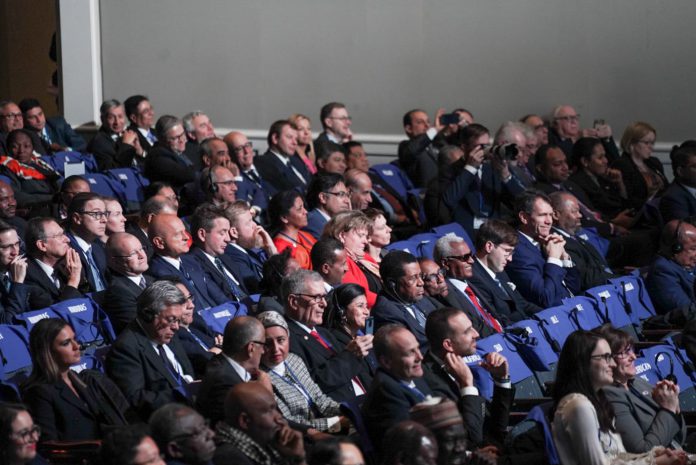
Washington DC/New Delhi (NVI): Finance Ministers of the world have agreed to double the amount of funds that the International Monetary Fund (IMF) can utilise to financially support distressed nations but have yet again postponed giving more votes to major emerging economies.
IMF’s governing body on October 18 agreed to a plan to shore up the crisis lender’s resources, doubling to $500 billion a temporary fund provided by 40 of the fund’s 189 members, an IMF statement said.
IMF Managing Director Kristalina Georgieva said, she welcomes this high-level endorsement, which demonstrates the strong support of our membership for the fund’s mission.
For some time now, there has been a move in the IMF to restructure its voting shares to give more weight to growing economies like China, India and Brazil. However, some traditional powers have resisted it apparently because it may dilute their influence in the institution. The Washington-based lender, founded in the wake of World War II, has traditionally been controlled by the United States and western European countries.
But major developing economies, which account for a growing share of global GDP, warn that without a shift of the power structure the IMF risks losing legitimacy and the ability to influence economic policies.
India Finance Minister Nirmala Sitharaman led the Indian delegation to the Annual Meetings Plenary session of the International Monetary Fund (IMF) and the World Bank Group held in Washington DC on October 18. She also attended the Working Lunch Session of the Development Committee (DC), the ministerial-level committee of the IMF and the World Bank.
In the DC Lunch, the members discussed about the global economic outlook. In her intervention, the Finance Minister mentioned that trade wars and protectionism have generated uncertainties that will ultimately impact flow of capital, goods and services. She called for ‘concerted action’ to mitigate the disruption on account of synchronous slowdown and to invoke the spirit of multilateralism for global growth.
She further said that the increased trade integration, geopolitical uncertainties, and high accumulated debt levels necessitate strong global coordination and that we need not wait for the slowdown to become a crisis.
-nad










